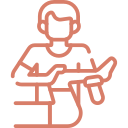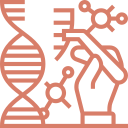During pregnancy, the body experiences numerous transformations, particularly affecting the abdomen and pelvis. The abdominal wall stretches to accommodate the growing baby, causing postural adjustments in the spine, pelvis and hips. Additionally, the pelvic floor faces increased strain due to the growing weight of the uterus and baby which in turn intensifies the demand on core and pelvic muscles to maintain stability. While these changes are essential for supporting the developing baby, they can unfortunately result in various discomforts
Following childbirth, whether vaginal or C-section, the core and pelvic floor muscles are weakened. Factors such as tearing, episiotomy, or the use of forceps/vacuum during delivery can further diminish pelvic floor strength and potentially lead to pelvic pain. It’s crucial to engage in muscle retraining to restore optimal function before resuming regular activities.
A pelvic health physiotherapy assessment will include:








PhysioVai a highly qualified physiotherapist, offers personalized care in orthopedics, musculoskeletal issues, and pelvic floor rehabilitation. With virtual and in-home services, she aims to improve accessibility and holistic wellness.